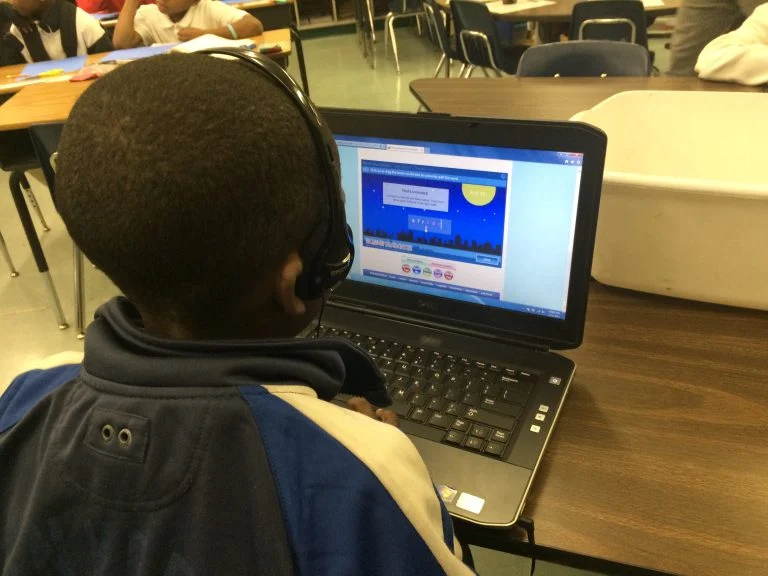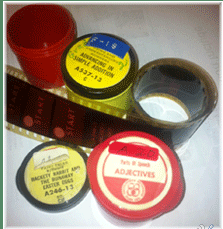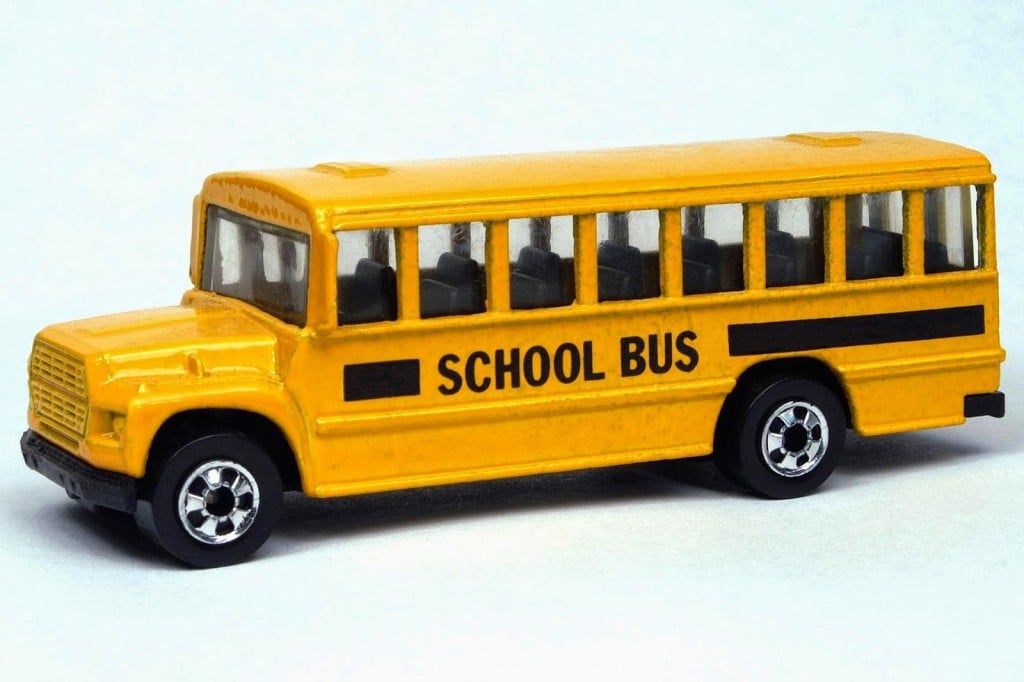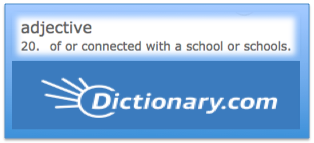Hi, I’m the founder and president of VocabularySpellingCity. Around the office, they sometimes call me the Mayor. Here’s the news: We have expanded to where we are now LearningCity!
LearningCity is a family of three super cool edtech products to elementary schools. All three align to our mission of improving reading and literacy skills. VocabularySpellingCity and WritingCity are both literacy products. Science4Us also builds STEM and science skills and interest in the vital early education years while also building literacy and math skills.
All these products use game-like approaches to engage students and a variety of tools to improve teacher productivity.
For those of you that have followed us since our SpellingCity days, or who are still using our free spelling practice and automation services, I’d advise you tolook at what our Premium Membership offers. It takes the fun convenient SpellingCity framework and applies it scientifically to the critical needs in building reading comprehension of vocabulary retention. Here’s some info on that product evolution. I’d like to call out the novel technology that we created for helping students see the sounds that correspond to letters and letter combinations (patent 10,387,543).
About Me – John Edelson
I made video games for the Playstation for years including being the producer on Croc, Legend of the Gobos, a Sony Playstation game that went Platinum. One day, I decided to focus on educational software and games which I’ve been doing for almost 15 years. I also spent two years in the Peace Corps in Cameroon in West Africa. And I worked in Silicon Valley at legendary tech companies such as SGI and The 3DO Company. Feels like a galaxy far far away. I have three hobby blogs. In one, I highlight my collection of vintage educational technology like film strip projectors and mimeograph machines. I also collect playing card jokers . The third blog discusses my ambitions to earn a black belt by the time that I turned 50 (which I did) and my efforts to stay fit since then across various sports. I think education should be much much much better than it is today and that technology and improved funding and management are huge parts of getting there. And I have degrees from Yale and Harvard. And I’m a pretty good listener so if you have something to share with me, give me a try. You can reach me by commenting below, emailing “mayor@…”, or via my Twitter feed @VSpellCityMayor OK, now more formally: John Edelson is the president and founder of Vkidz Inc which includes VocabularySpellingCity, Science4Us (K-2nd Science, CODiE & BESSIE Winner), and WritingCity, a complete elementary writing program with detailed lesson plans based on the Writers Workshop approach . He serves on the Advisory Board for the Florida Atlantic University School of Education. He has a long involvement in interactive software, games, and simulations, starting with his years at Silicon Graphics in the late ’80s and early ’90s. At The 3DO Company in the early and mid ’90s, he was involved in the generational video game transition from 2D sprite graphics to games with real-time 3D photorealistic graphics and physics engines.
|
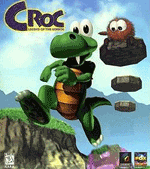 Mr. Edelson was the producer on Croc, Legend of the Gobos, a Sony Playstation game that went Platinum. He was the turn-around manager at Argonaut – a 100-person diversified games and technology company in London. He managed it for two years, improving quality, growth, and profitability. He spun-out and joined ARC, a new company in the semiconductor intellectual property industry. Mr. Edelson, as Senior Vice President of ARC, helped the company grow from 10 to 300 people. He consulted to Vcom3D, an educational software company for the deaf and hard of hearing, as well as Time2Read, an educational software company providing standards-based online programs to elementary school systems. Mr. Edelson has previous professional experience at MID and Price Waterhouse Consulting.
Mr. Edelson was the producer on Croc, Legend of the Gobos, a Sony Playstation game that went Platinum. He was the turn-around manager at Argonaut – a 100-person diversified games and technology company in London. He managed it for two years, improving quality, growth, and profitability. He spun-out and joined ARC, a new company in the semiconductor intellectual property industry. Mr. Edelson, as Senior Vice President of ARC, helped the company grow from 10 to 300 people. He consulted to Vcom3D, an educational software company for the deaf and hard of hearing, as well as Time2Read, an educational software company providing standards-based online programs to elementary school systems. Mr. Edelson has previous professional experience at MID and Price Waterhouse Consulting.
John Edelson has a BA cum laude from Yale and an MBA from Harvard. He served in the Peace Corps in West Africa for two years. As the proud father of three children, Mr. Edelson has a deep interest in improving education through technology. Oh, for you academics and learning scientists out there, I’m very proud to say that Danny Edelson of BSCS, xNational Geographic, and xProfessor at Northwestern, is my brother.
VocabularySpellingCity – What is it?
VocabularySpellingCity is a supplementary language arts program for building reading comprehension through vocabulary retention and building foundational literacy skills. It is compatible with most published curriculum or for schools that are building their own.
One of our touch points is the following insight into today’s educational challenges.
Seventy percent of reading comprehension problems are due to vocabulary weakness. Most schools and districts are only beginning to deal with building an effective vocabulary-building program. Many are still hoping that if the kids read enough, they’ll absorb vocabulary through exposure, context clues, and word roots and suffix knowledge (NOTE, this isn’t generally effective). Other schools work with explicit instruction but are stuck on the weekly word list routine where students learn the words for Friday but have forgotten them by Monday (both research and common sense converge in saying that this weekly cycle is not effective). VocabularySpellingCity’s mission is to help schools and districts build an effective vocabulary-building strategy and support it with effective training and powerful game-based learning tools.
Our History: VocabularySpellingCity started as SpellingCity, an extremely clever architecture and technology tour de force, which conveniently automated the weekly spelling test. Teachers and parents loved the convenience, students loved the empowerment and games.
SpellingCity built a word bank of nearly 50,000 and provided human-written and spoken sentences for each word. SpellingCity built needed capabilities for handling multiple meaning words, sound-alike words, heteronyms (same spelling, different pronunciation and meaning, ie I fish for bass while playing the bass), capitonyms (same spelling except for capitalization ie I may march in May or March), and so on. With these capabilities and both a free and premium membership, SpellingCity went viral around the country and world.
The Premium Membership – available for districts, schools, teachers, or parents – automated grading and record-keeping and provided the best games plus the vocabulary, phonics, and writing materials. SpellingCity broadened its technology base including pictures for many words and providing an automated sound by sound breakdown for each word with each sound correlated with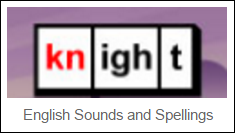
the right letter combinations. The learning activities including activities for phonological awareness (hearing initial and ending sounds, recognizing spoken words). SpellingCity continued to grow and usage was spread into the primary grades and across the web, Chromebooks, and tablets via the apps. After a few years, SpellingCity started searching for how to have the most impact on education by studying what the real challenges and questions were.
Vocabulary quickly emerged as a huge problem in education and so we focused on building programs for vocabulary-building and renamed ourselves VocabularySpellingCity. By 2016, we realized that the conventional weekly word list was largely ineffective at accumulating vocabulary. Students would memorize the words for the test on Friday but would tend to forget them by the week. In reviewing the research, we learned that a key to building vocabulary was 12-15 multimedia (hearing, reading, writing) contacts with a word over a four week period. Other research-based insights included having a vocabulary program integrated with the general curriculum and focusing on the strategic academic words, not just the impressive-sounding or even general vocabulary.
VocabularySpellingCity Today – Today, we are very focused on helping schools and districts realize their goals for improving reading comprehension, writing skills, and vocabulary. We use technology to:
Engage and empower students. VocabularySpellingCity empowers students to do their own formative assessment which is dramatically emnpowering and engaging. It’s hard for students to figure out if they have mastered a list of words and are ready for a vocabulary or spelling test. With VocabularySpellingCity, they can figure through the always-available practice tests whether they’ve achieved mastery or not, the can tell if they still have more progress to make.
- Build literacy skills in an integrated holistic fashion with a focus on vocabulary-building and sound-letter correspondence. Having trouble with a word? Let’s study its meaning, sounds, or try to write a sentence with it. Students learn how words are used in context.
- Save teachers lots of time. Classroom time and homework (grading and recording and printing) time.VocabularySpellingCity is a powerful tool for building literacy skills. It enables teachers to deliver their curriculum in a manner that allows for differentiation. Without our site, it’s nearly impossible for a single teacher to successfully teach three different sets of word lists (approaching-, at-, or above-grade level), as the major reading series (Treasures, Reading Street, Reading Wonders) prescribe. And while the idea of teaching with individualized lists, using the method employed by Words Their Way seems great, it requires a massive amount of work by a teacher every week. But with VocabularySpellingCity’s Review Lists feature, creating individualized word lists for each student is simple. Students can then study the words that they need additional practice with through a rotation at a literacy center equipped with Chromebooks, PCs, iPads, or Android tablets.
Have anything you want to say to the Mayor? Just click on comments and leave me a message.
The Mayor loves to visit schools and to hear directly from teachers and educators.






